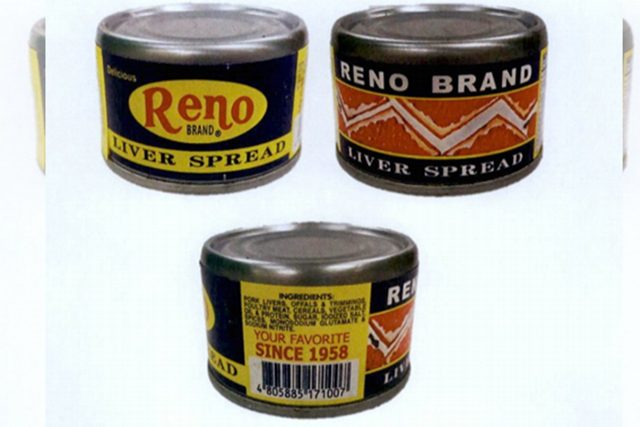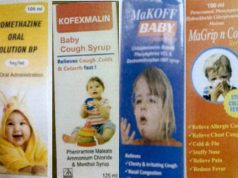Longtime liver spread product Reno is now back on the grocery shelves after the state health regulatory agency discouraged consumers from buying it due to its unregistered status.
Food and Drug Administration head Eric Domingo said that the affordable canned good can now be sold on the market after its manufacturer had obtained a certificate of product registration (CPR).
“Itong liver spread wala nang kulang na dokumento at pumasa sa ating panuntunan,” he said to ABS-CBN’s Teleradyo on Friday.
The liver spread secured its CPR from the agency two weeks ago.
FDA previously said in another interview that the evaluation process for CPR entails checking the safety and quality of the product with applicable standards and issuances.
Meanwhile, the return of the popular household staple excited Filipinos who have been consuming the liver spread for a long time.

“Mas sasarap na ulit ang kaldereta at spag,” a Twitter user wrote with a grinning emoji.
“Hooray for caldereta. Makakaluto na uli,” another online user exclaimed in response to the news.
“RENOhistro na ang #PambansangPalaman!” a different Filipino quipped with a smiling emoji.
“Yes, sarap kaya ng Reno sa mainit na pandesal,” shared another Twitter user with a savoring face emoji.
Last month, Reno broke hearts when FDA released a public health warning about certain products which it said were “unregistered” in its system.
Among these products is the longtime canned good that has been in the market since 1958, long before the agency started registering processed food in 2009.
RELATED: Why FDA is warning the public against purchase of Reno liver spread
Consumers of the liver spread aired their concerns, questions and opinions on the advisory but FDA clarified that they did not single it out.
“It so happened na based on our verification, hindi pa po sila registered, hence the advisory. Kasi we’re doing it naman in all products. Hindi pinipili, it’s random,” Marilyn Pagayunan, director of the FDA Center for Food Regulation and Research, said last month.
She added that they have decided to prioritize “high-risk products,” which include meat, due to the agency’s limitations in terms of manpower.
“When you say high-risk ‘yun ‘yung mga characteristic ng product mo na may mga posibleng microbial pathogens. For example, ‘yung meat products na ‘yan, it’s a high-risk product,” Pagayunan said.










